Facebook Marketing: Tips and Best Practices
Get to know how to connect with customers via the social media powerhouse.
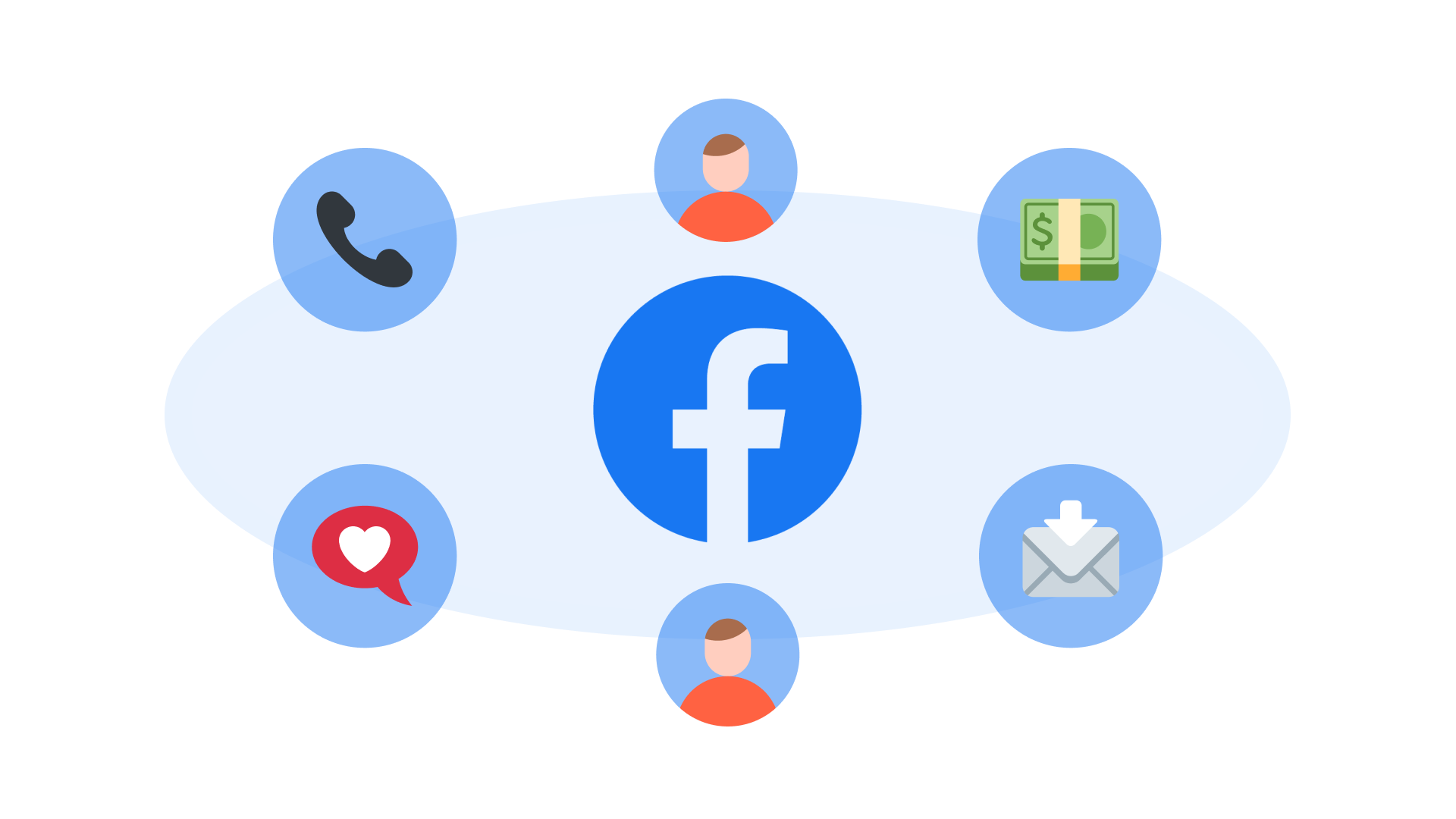
In the vast, interconnected digital world, Facebook plays the role of more than a social media platform, offering the functionality of a digital marketplace to more than 3 billion of its monthly active users. Whether a small business or a large corporation, it is essential for a brand to know how to effectively leverage Facebook's marketing tools to remain on top among competitors.
The platform's advertising features continually evolve, with new formats and targeting options emerging regularly. In the article, we'll explore the benefits of generating leads and staying in touch with existing customers through Facebook Marketing and offer step-by-step guidance on how to unlock the full potential of Facebook marketing for your business.
What is Facebook marketing
Facebook Marketing refers to the strategic utilization of the social media platform's features to market and promote a brand, products, or services.Today, more and more brands prefer this dynamic form of marketing over traditional advertising, as it helps foster meaningful interactions, build communities, and engage with their target audiences right within a space where they spend a significant portion of their daily lives.
The power of Facebook marketing
Facebook marketing offers numerous benefits for businesses of all sizes. Let's take a closer look at some of its key advantages.
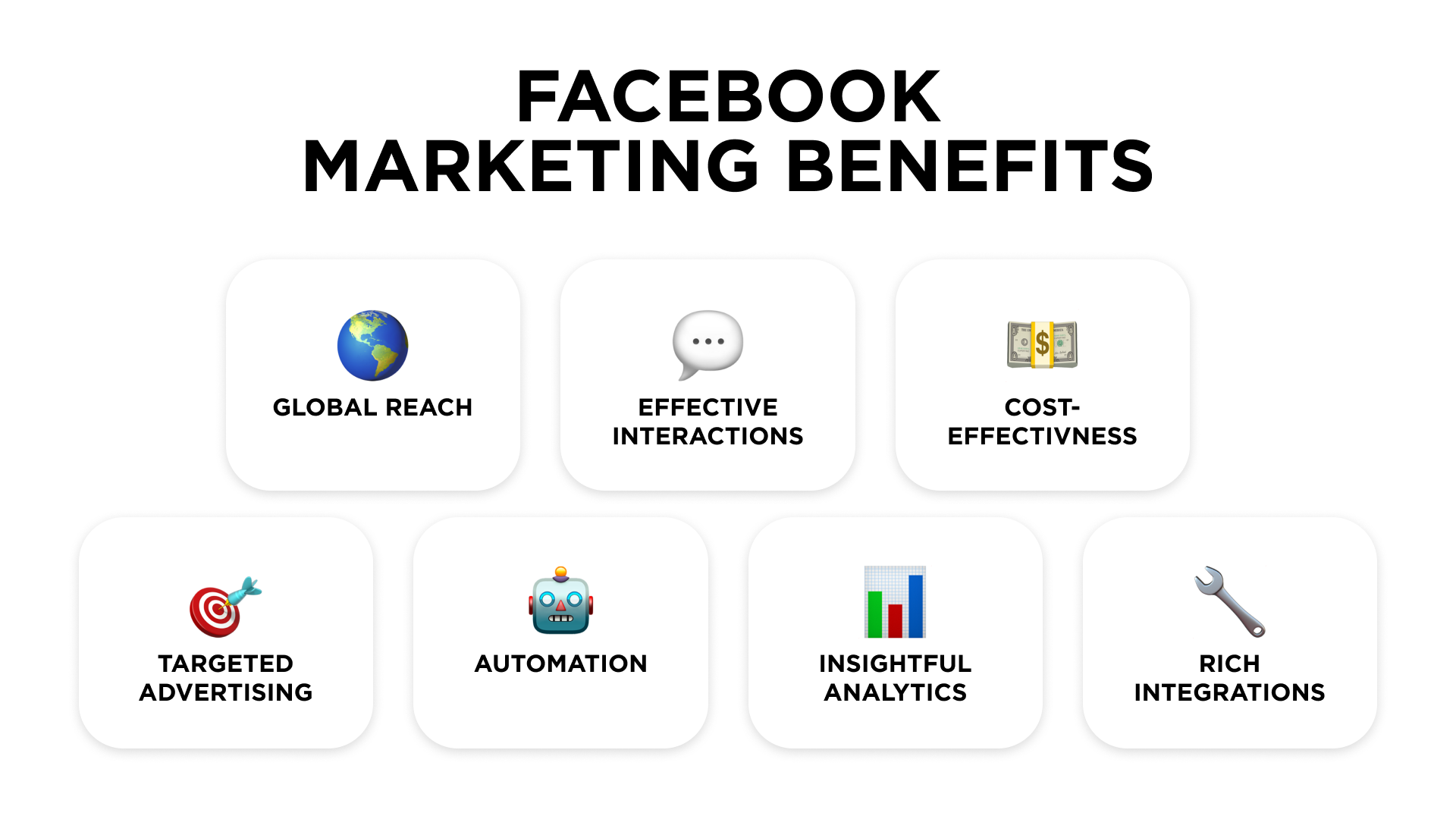
Wide reach
Facebook has billions of active users, allowing businesses to reach a vast and diverse audience. Thanks to this, Facebook marketing enables businesses to connect with international customers, expanding their market to other regions and countries efficiently.
Expansive interactions options
Facebook offers numerous channels and features for connecting business with its customers. A company can interact with its audience through posts and comments, as well as directly via messages, fostering a sense of community and loyalty. By responding to comments, hosting Q&A sessions, and sharing behind-the-scenes content, businesses can humanize their brand and create emotional connections with customers.
Local businesses can significantly boost their visibility and customer engagement through targeted advertising on Facebook. By utilizing local awareness ads, these organizations can focus their marketing efforts on specific communities, effectively driving foot traffic and spotlighting special events or offers. Such hyper-local targeting ensures that promotions reach the most relevant audience, potentially increasing the return on investment for these ad campaigns.
Moreover, the power of social proof through reviews and recommendations plays a key role in building a business's reputation online. The two-way nature of communication on Facebook helps a company to receive more feedback promptly, which helps businesses understand their audiences' needs and preferences, as well as build credibility.
Cost-effectiveness
Facebook allows for precise budget control, with options to set daily or lifetime spending limits. At the same time, the return on investment (ROI) for Facebook ads often surpasses traditional advertising methods, with many companies reporting ROI in the range from 2:1 to 5:1. The platform's auction-based pricing model also ensures that businesses only pay for actual ad impressions or clicks, further maximizing cost-efficiency.
Targeted advertising
One of Facebook's most powerful features is its advanced targeting capabilities. Businesses can narrow their audience based on a wide range of demographics, including age, gender, location, interests, and behaviors. This precision allows for highly relevant ad delivery, significantly increasing the likelihood of engagement and conversion. For instance, a dietary supplement company could target health-conscious individuals aged 25-45 in urban areas who have shown interest in particular nutritional supplements to reach their fitness goals.
Additionally, businesses can create custom audiences using existing customer data, such as email lists or website visitors, to re-engage past customers or target lookalike audiences with similar characteristics. These targeting strategies typically boost conversion rates by 20-30%, as ads reach users who are more likely to be interested in the product or service.
Automation
Facebook’s Automated Ads simplify the ad creation process by using machine learning to optimize ad performance based on a company’s business goals and audience engagement. For example, a marketer can create multiple ad versions, and Facebook will automatically show the best-performing one. This makes automation a powerful tool for driving website traffic, generating leads, building brand loyalty, and maximizing return on investment.
Insightful analytics
Facebook's robust analytics tools provide businesses with valuable insights into their ad performance and audience behavior. The platform offers detailed metrics on reach, engagement, click-through rates, and conversions, allowing businesses to optimize their ad spendings and improve campaign effectiveness. Since these insights extend beyond just ad performance, they offer valuable data on customer preferences and behaviors, which can guide product development, inform marketing strategies, and help businesses better understand their target market.
Versatile ad formats and automation
Facebook offers a wide array of ad formats to suit different business goals and content types. From simple photo ads to immersive carousel ads and interactive ads, businesses can choose formats that best showcase their products or services. Read more about them in the following section of our article.
Facebook marketing ads types
One of Facebook marketing strengths is its diverse array of advertising options. Let's take a closer look at the different types of ads that brands can use on Facebook.
- Image ads are the most basic and commonly used type of Facebook ad. They consist of a single image, accompanied by a headline, description, and call-to-action (CTA) button. They are ideal for showcasing products, promoting special offers, or highlighting your brand's unique selling points.
- Video ads are a highly engaging and effective way to capture an audience's attention. Facebook allows you to create video ads that autoplay in users' feeds, making them more likely to view this content. Video ads can be used to tell a story, demonstrate a product, or provide valuable information to your target audience.
- Carousel ads allow you to showcase multiple images or videos within a single ad, each with its own link. This ad format is perfect for displaying a range of products, highlighting their features or benefits, or telling a story through a sequence of images.
- Collection ads are designed to help businesses showcase their products in a visually appealing manner. They feature a main image or video, along with several smaller product images below. When users click on the ad, they are directed to a fast-loading, full-screen experience where they can browse and purchase products.
- Lead ads are designed to help businesses collect user information, such as names, email addresses, and phone numbers, directly within the Facebook platform. These ads are ideal for generating leads, signing up users for newsletters, or offering free trials or downloads.
- Dynamic ads are a powerful way to retarget users who have previously interacted with a brand’s website or app. They automatically promote products or services to users based on their past actions, such as viewing a specific product or adding an item to their cart without completing the purchase.
- Instant Experience ads (formerly known as Canvas ads) are full-screen, immersive ads that load instantly within the Facebook app and can include a combination of images, videos, text, and CTA buttons, providing a rich and engaging experience for users.
- Stories ads that appear in Facebook Stories, which is a format growing in popularity among users. Full-screen, vertical videos or images can be enhanced with filters, stickers, and text overlays. Stories ads are ideal for brands looking to create authentic and engaging content that resonates with their target audience.
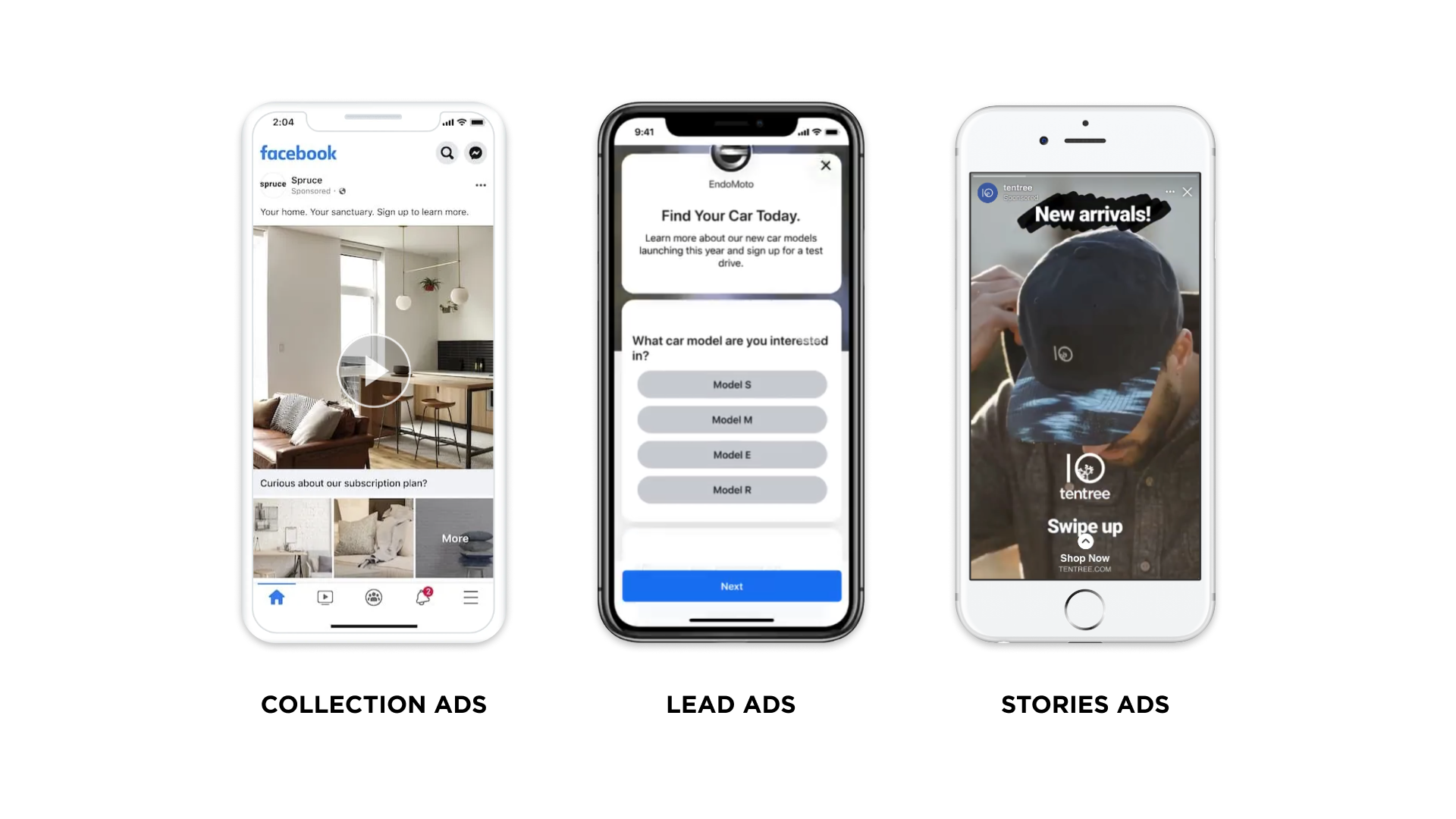
How to start FB marketing in 7 steps
Ready to harness the potential of Facebook marketing but don’t know where to start? The most effective strategy to launch your campaign effectively would be to follow the steps below.
1. Define Goals
Before starting to work on the practical implementation of Facebook marketing efforts, it is essential to define clear and measurable goals. Establish whether you are looking to increase brand awareness, drive traffic to your website, generate leads, or boost sales and set definite objectives in figures (for example, gain 500 new followers in a month or achieve a 20% increase in website traffic from Facebook). Clear and tangible goals will help you tailor your strategy and measure its effectiveness later.
2. Understand audience
Knowing your audience is crucial for effective marketing. Take time to research and understand who your ideal customers are, including their demographics, interests, and behaviors. This information will guide your content creation and ad targeting.
Use Facebook Insights to analyze your current followers and understand their preferences. For example, a typical audience can be segmented by some of the following parameters:
- age;
- gender;
- location;
- interests and hobbies;
- device usage.
It also pays off to expand the reach of campaigns by creating lookalike audiences based on existing custom audiences, targeting users with similar characteristics and interests.
3. Create a Facebook Business Page
If you haven’t already done so, create a Facebook Business Page. This is where you’ll share content, interact with followers, and promote your products or services. It is extremely recommended to fill out all the information sections, including your business description, contact information, and website link, and use a high-quality profile picture and cover photo.
4. Develop a content strategy
Craft a balanced Facebook content strategy by focusing on diverse post types that engage and inform your audience. Share industry and company news, offer Tuesday Tips with short tutorials, highlight customer reviews, announce new products and promotions, and provide behind-the-scenes glimpses. Incorporate exclusive discounts and interactive content to keep your feed lively. Follow the rule of thirds (one-third ideas/stories, one-third audience interaction, one-third promotional content) and the 80/20 rule (80% informative/entertaining, 20% promotional) to maintain a well-rounded approach.
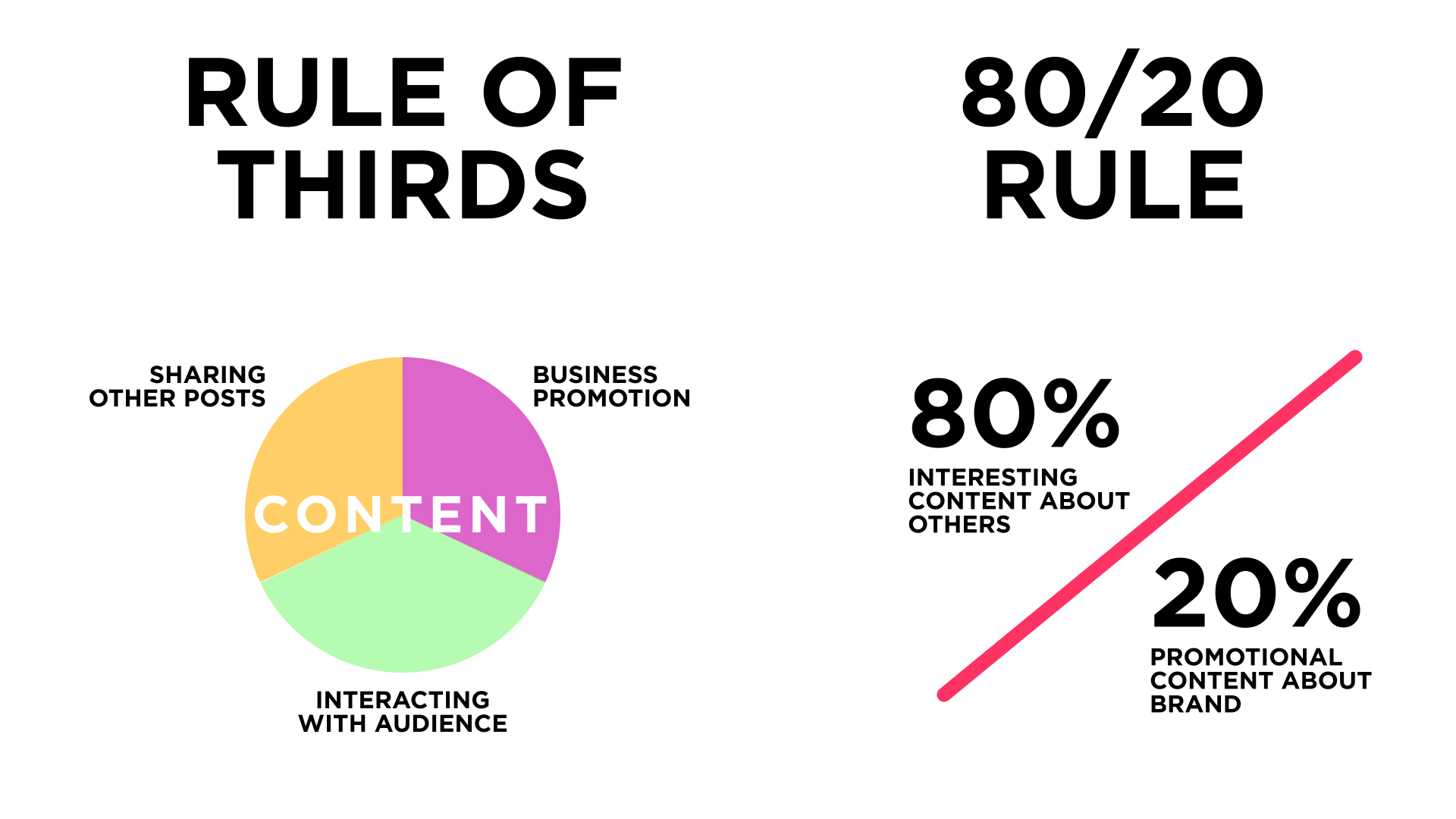
Determine optimal posting times using Facebook Audience Insights. For most cases, it is between 8 a.m. and noon on Tuesdays and Thursdays, but do not hesitate to experiment to find what works best for your audience. Use a content calendar to plan and schedule posts in advance, ensuring consistency and effective time management. By blending creativity with strategic planning and audience research, you can create a compelling Facebook presence that resonates with your followers.
5. Utilize Facebook Ads
Once you've established a solid organic presence on Facebook, leveraging Facebook Ads can significantly enhance your reach and engagement. Facebook provides a diverse range of ad formats, such as image ads to showcase products visually, video ads to tell compelling stories, and carousel ads to display multiple images or products in a single ad unit. Choosing the right format is crucial, as it should align with your marketing objectives—whether driving traffic to your website, increasing brand awareness, or boosting product sales. Each format comes with unique benefits; for instance, video ads can capture attention effectively in a crowded feed, while carousel ads allow for a more interactive experience, encouraging users to swipe through multiple offerings.
6. Engage with the audience
Engagement is key to building a loyal community on Facebook. Monitor your notifications regularly and respond to comments, messages, and reviews promptly, and encourage conversations by asking questions or running contests. Additionally, consider using Facebook Live to host Q&A sessions or behind-the-scenes looks at your business.
7. Analyze and optimize Facebook Marketing
Regularly review data in Meta Business Suite Insights to assess how posts and ads are performing. Track key metrics such as engagement rate, click-through rate (CTR), and conversion rate. Use the “Goal setting” feature to establish and track goals consistently.
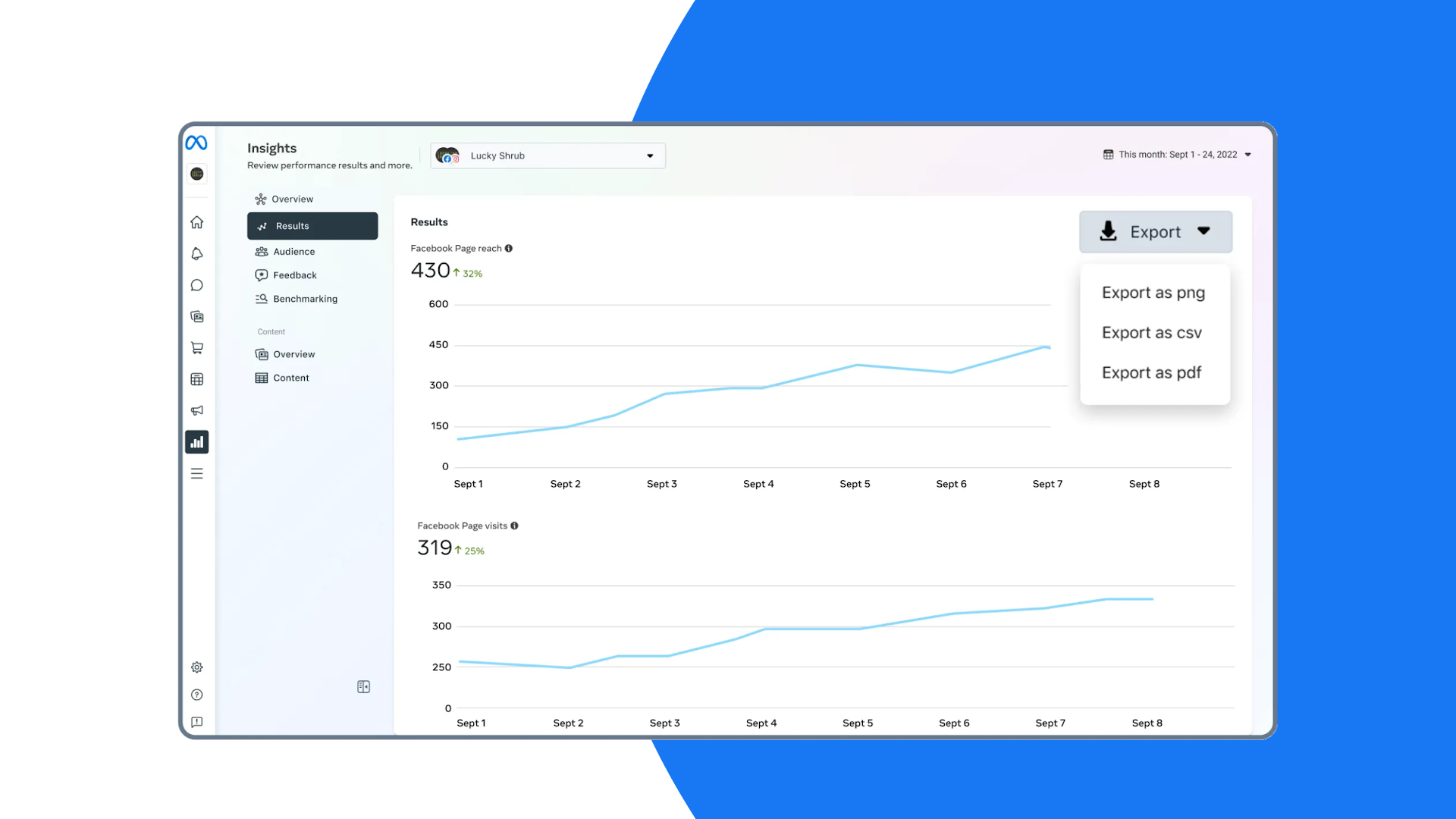
Look for patterns in this data and adjust your strategy accordingly. Here, A/B tests can be very useful to test various content types and ad formats to see what resonates best with the audience and delivers better engagement. A test runs for 30 minutes, and the version that gets the most engagement and impressions is automatically published on a Page after.
Cost of marketing on Facebook
The cost of marketing on Facebook can vary greatly depending on your business goals, target audience, and the type of advertising you choose to pursue. The budget depends on the company's specific goals, target audience, and campaign structure.
According to recent data from WordStream, the average cost per click (CPC) for Facebook ads across all industries is $1.70. However, this figure can fluctuate wildly. Highly competitive industries like finance and insurance can see CPCs exceeding $3, while others like apparel might land closer to $0.97. Beyond industry benchmarks, factors like audience targeting (niche vs. broad), ad placement (story vs. news feed), and even the time of year can significantly impact your spending. Therefore, approaching Facebook advertising with a clear strategy and a willingness to test and optimize is key to maximizing your return on investment.
Is Facebook marketing worth it
Facebook marketing can be highly effective and worth the investment for businesses of various sizes due to its extensive user base, sophisticated targeting options, and diverse ad formats. The platform's robust analytics tools provide valuable insights into campaign performance, enabling businesses to optimize their strategies for better results. Additionally, the integration of Facebook with Instagram expands the advertising potential, making it a versatile and powerful tool for brand awareness, lead generation, and sales conversion when utilized effectively.
Summing things up
Facebook marketing offers businesses a diverse set of opportunities to promote their brands, ranging from organic content creation to targeted paid advertisements that include photos and videos. The ability to analyze user behavior and preferences empowers marketers to craft compelling content that not only captures attention but also fosters meaningful relationships with consumers.
Unlock numerous benefits for both sales and customer support with Facebook integration by Umnico — the omnichannel messaging solution that combines popular social media and messaging apps, such as WhatsApp, Instagram, and Discord, in a single interface. From automated chatbots to insightful analytics, Umnico equips brands with the tools to personalize interactions, optimize response times, and continuously elevate customer support. Try the platform for free during a trial period and see how it can help build stronger relationships with your customers, driving loyalty and long-term success.

Subscribe to Umnico news!
Be the first to get recommendations and up-to-date information
